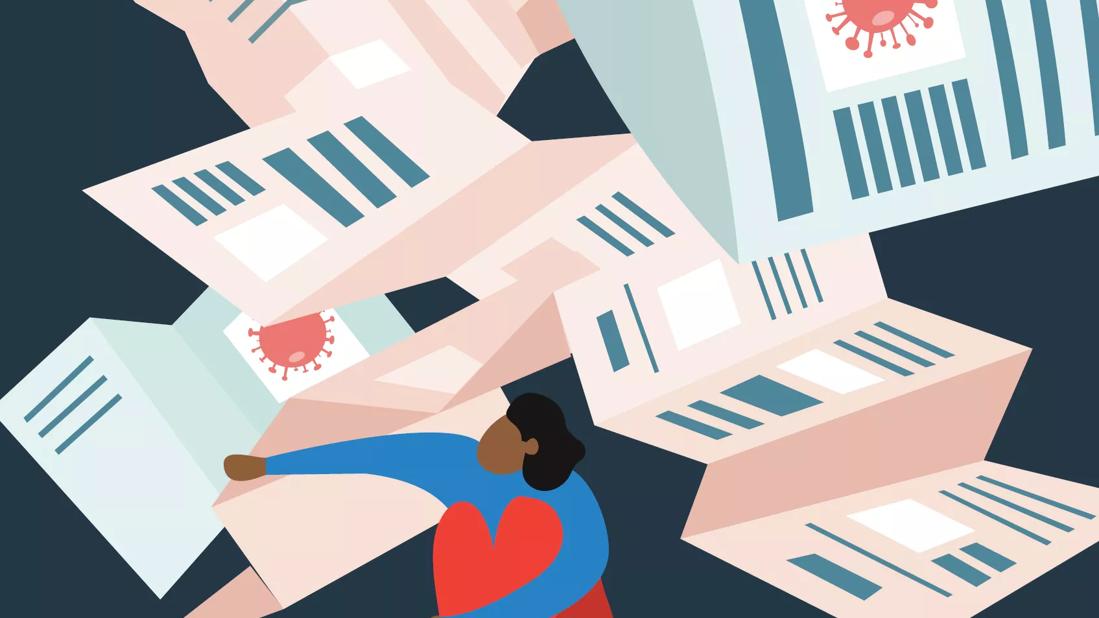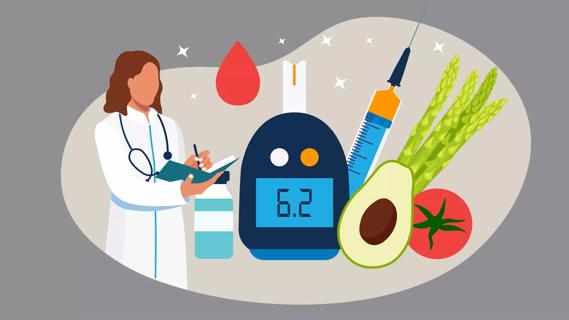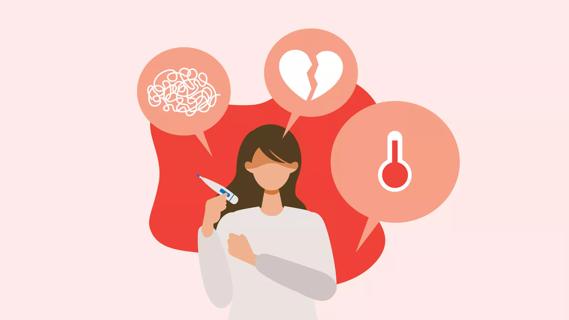Set your limits and find your balance

In our modern world, there are many stressors and sources of anxiety. Global events, health-related issues and an overload of information from social media can add up quickly. And all of this can create overwhelming stress.
Advertisement
Cleveland Clinic is a non-profit academic medical center. Advertising on our site helps support our mission. We do not endorse non-Cleveland Clinic products or services. Policy
“News has become more continual and more immediate,” says psychologist Matthew Sacco, PhD. “It’s harder now to step away from the digital world. The constant stream of information is changing what we’re exposed to and what our brains are doing.”
Stress from information overload can have serious consequences. High stress can lead to a variety of health issues like high blood pressure and nausea. But Dr. Sacco explains that just as the world is changing, our tools for dealing with stress are changing, too. Stressors can come from an array of sources daily, so it’s important to find ways to manage stress day by day.
“We are inundated with so many things, not just the news,” says Dr. Sacco. “We’re inundated with our own personal things that are going on, which on their own aren’t overwhelming. But over the course of time, when your brain is processing all this information — eventually, you do start to feel it.”
Dr. Sacco shares tips and tools that can be used during times of high stress.
We’ve all been there. When a major news event or crisis happens, many of us turn to our phones, internet searches and social media feeds to feel informed. But unchecked, this habit can lead to doomscrolling — the act of subjecting yourself to a constant stream of negative or stressful news from social media. This can lead to burnout and feeling overstimulated, so it’s important to set limits.
Advertisement
While you might feel a deep desire to stay informed — about global events, gas prices and local news — setting boundaries around how much information you take in is important. According to Dr. Sacco, something as simple as getting a notification that reminds you how long you’ve been staring at your screen can help you stop the doomscrolling cycle. If even small doses of screen time cause you stress, you might want to make an even greater effort to get your phone out of the picture.
“It’s all about finding a balance because there’s certainly an amount of being aware of what’s going on in the world, as things do change day to day,” says Dr. Sacco. “But being mindful of your reaction to those things is important.”
When it comes down to it, there may be some days when it’s hard to escape the negative or overwhelming news on your screen. Take stock of your reactions and how you’re feeling. Then, Dr. Sacco recommends focusing on what you can control.
“Being mindful, first of how you react and how you can adjust what’s coming into your system, that’s the only thing you really can control,” he says.
The last two years of the ongoing pandemic have caused additional stress and anxiety for many people. Now, as society begins to open back up, readjusting to past activities can bring another layer of stress. Normal things such as grabbing dinner with friends or going to concerts can be hard to go back to with comfort.
If you’re struggling with the return of pre-pandemic activities and gatherings, Dr. Sacco recommends easing back into group settings in a way that’s good both for your physical and mental well-being. This means surrounding yourself with those in your life who’ll respect your boundaries related to the pandemic and COVID-19 safety measures.
“If you’re going to get back socially to being in groups, you probably want to start with the group of people you’re most comfortable with,” advises Dr. Sacco.
Advertisement
Learn more about our editorial process.
Advertisement

Ground yourself in evidence, name your thoughts out loud and meet yourself in the middle to help defuse worst-case scenarios

Fill your coping toolbelt with healthy skills like getting outside, writing in a journal, volunteering, laughing or talking with a friend

We all experience some stress from time to time, but chronic stress can contribute to health issues like diabetes and cardiovascular disease

Getting outside, eating a healthy diet, taking up journaling, listening to music — even cuddling a pet — can provide stress relief

Give these 30+ grocery items a try to help find relief

In response to stress or danger, your brain responds by either defending itself, running away, stopping or reconciling

A diabetes diagnosis, new or long-standing, can trigger reactions like grief, stress, depression and frustration, but symptom relief and help are available

From nausea, weight gain and eczema, stress can affect your immune system in many ways

If you’re feeling short of breath, sleep can be tough — propping yourself up or sleeping on your side may help

If you fear the unknown or find yourself needing reassurance often, you may identify with this attachment style

If you’re looking to boost your gut health, it’s better to get fiber from whole foods